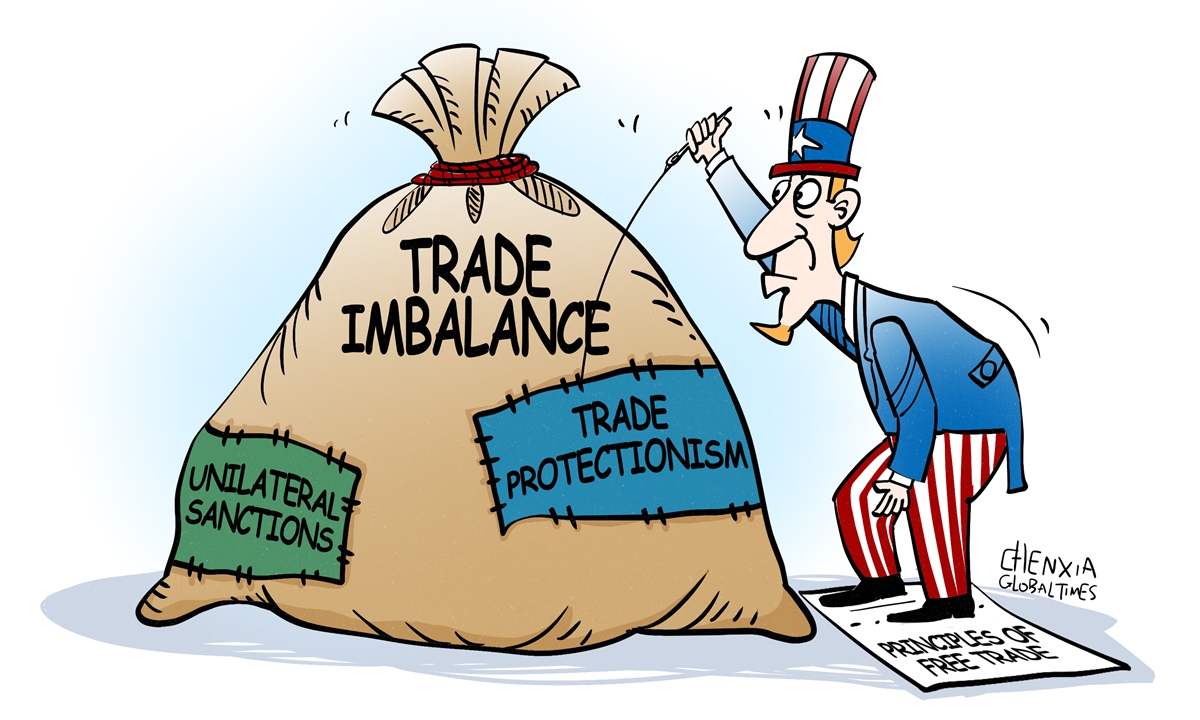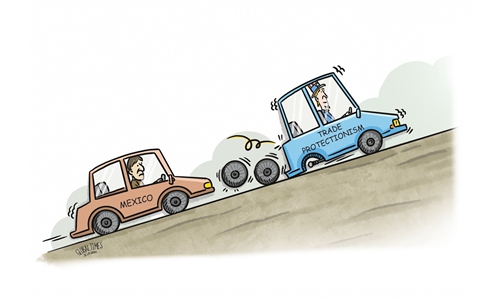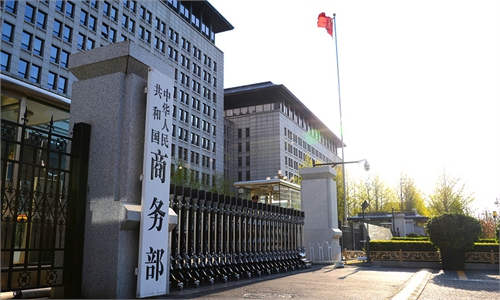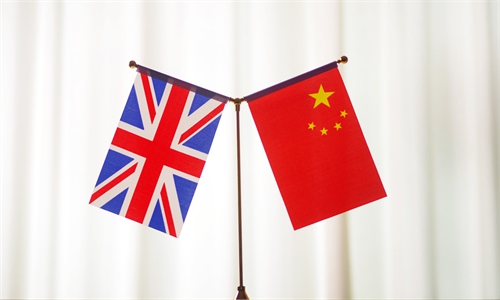
Illustration: Chen Xia/GT
Some in the US tend to perceive China as a primary contributor to the country's trade imbalance, and this perspective has become so entrenched that it allows little room for differing opinions.
A recent example is an article published on Friday by The Wall Street Journal (WSJ), entitled "The US and IMF Disagree About China. That's a Problem." The article points out that at a time when the US attributes trade imbalances to "China holding down consumption while subsidizing manufacturing and exports," the IMF rarely attributes those to cross-border influences, focusing instead on fiscal and other domestic factors. While ostensibly discussing the differing perspectives of the US and the IMF on trade imbalances, the WSJ article subtly conveyed a sense of dissatisfaction with the IMF's findings.
In a blog post last month, IMF staff investigated the US deficit and Chinese surplus and found little connection. In an implicit rebuke to the US, they wrote, "Worries that China's external surpluses result from industrial policies reflect an incomplete view."
The WSJ article actually reflects a tendency in the US to evade its own economic structural issues by attributing blame to other countries. This mindset not only obstructs meaningful solutions to domestic challenges but also risks escalating tensions in international economic relations. By diverting attention from internal woes, the US may be more prone to adopt confrontational approaches, fostering an atmosphere of mistrust and hostility that undermines the collaborative efforts essential for tackling global economic challenges.
The trade imbalance in the US is driven by multiple factors. While dominating high-end market segments, the US has shifted labor-intensive, resource-intensive and low-value-added industries to developing countries over the past decades. This structural adjustment in industry has led to a significant increase in imports, as the US relies heavily on these countries for a wide range of raw materials, intermediate products and consumer goods.
Meanwhile, the US economy largely depends on consumer spending, and high levels of consumption create significant demand for imported goods. When domestic production cannot meet this demand, imports increase, potentially resulting in a trade deficit. This consumption-driven economic model places the US in a passive position in global trade, contributing to a substantial trade deficit.
In response to wide trade deficits, the US government has opted for trade protectionism and unilateral sanctions. While these measures may appear to protect domestic industries and reduce the trade deficit in the short term, they contradict the principles of free trade and fair competition championed by the WTO.
In recent years, the US has continuously disregarded the expectations of WTO members and violated its rules. Under the guise of so-called "de-risking," it has overstretched the national security concept to encompass trade issues, politicized and weaponized economic and trade matters, escalated unilateral sanctions, frequently implemented discriminatory measures, and continuously raised tariff barriers. These actions pose severe challenges to the multilateral trading system and seriously harm the common interests of WTO members.
In many cases, China has been the main target of these unilateral US policies. For instance, despite the WTO's ruling that US Section 301 tariffs constitute a violation of WTO rules, the US continues to wield the "tariff stick" recklessly, ignoring the authority of the WTO and placing domestic law above its rules. Not only has it failed to revoke the relevant violations, but it has also further increased Section 301 tariffs on imports from China.
Such actions risk provoking retaliatory measures from trading partners and undermine the global trading system, which relies on mutual cooperation and adherence to established rules. In the long run, these protectionist and unilateral policies could stifle innovation, increase consumer prices and hinder economic growth, ultimately jeopardizing the very industries the US aims to protect.
In conclusion, the narrative in the US that attributes trade imbalances primarily to China serves to distract from the underlying structural challenges within the US economy. By focusing on external factors and adopting protectionist measures, the US risks exacerbating tensions in international trade and undermining the principles of free trade that have historically fostered global economic growth.
The author is a reporter with the Global Times.
bizopinion@globaltimes.com.cn




